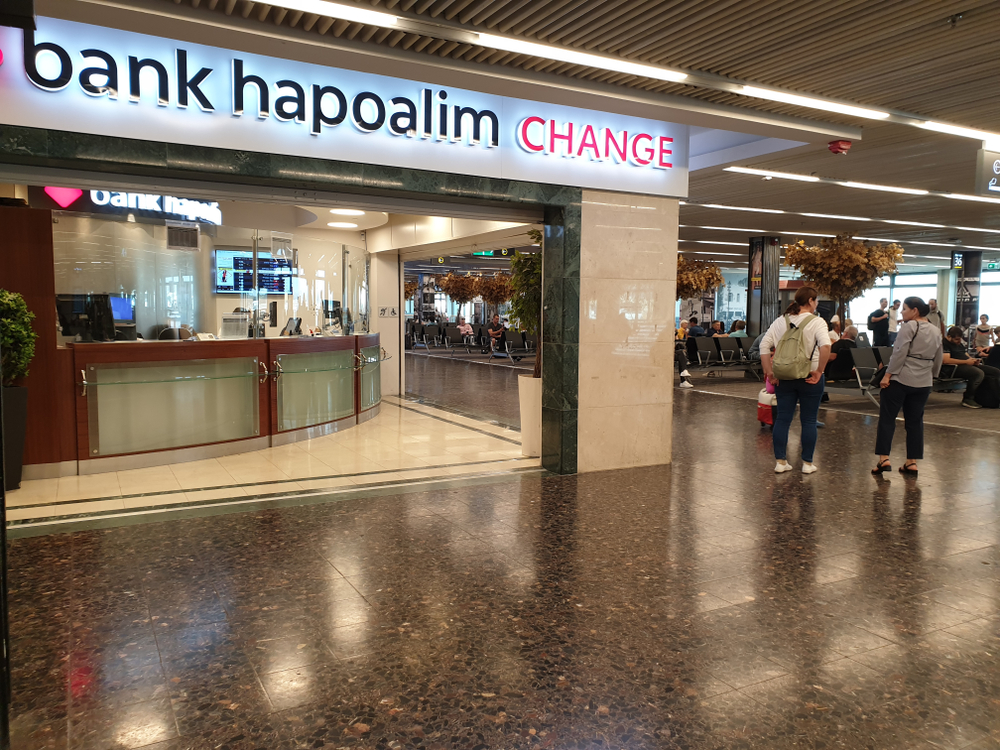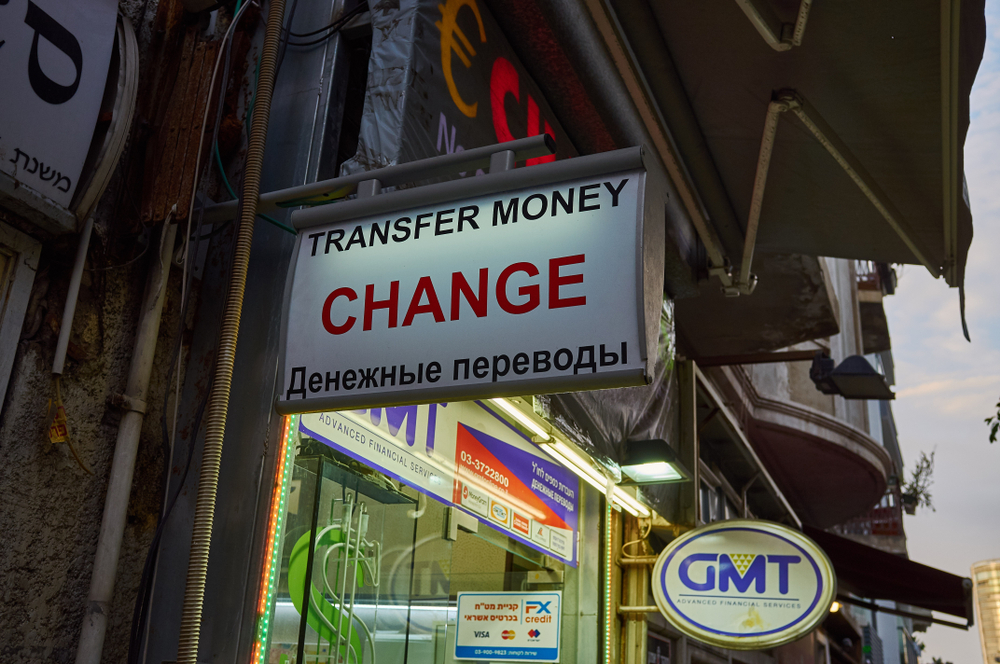Best Ways to Exchange Money in Israel: Essential Tips for Travelers

In this article, we’ll explore the best ways to exchange money in Israel, including options for travelers arriving in the country and advice for managing your money while you're here. If you travel in Israel with Gray Line, don’t miss the opportunity to learn about currency exchange methods directly from the local guides, who can provide you with helpful tips about the best ways to access money during your travels.
When planning a trip to Israel, one of the essential things you’ll need to think about is how to exchange money. Whether you’re planning to visit the cosmopolitan streets of Tel Aviv, the religious landmarks of Jerusalem, or the stunning beaches of Eilat, having the right currency on hand is crucial for making your trip smooth and enjoyable. Israel's official currency is the New Israeli Shekel (NIS), and while many places in Israel accept credit cards, it's still important to have some local currency for smaller purchases, tips, or places that may not accept cards.
1. Exchanging Money Before You Leave
One of the easiest ways to ensure you have the right currency when you land in Israel is to exchange some money before you depart. Many airports, international banks, and currency exchange offices offer competitive rates for exchanging foreign currency to the New Israeli Shekel. You can also exchange money at major financial institutions in your home country or even at local currency exchange shops.
While it’s convenient to exchange currency before your trip, it's important to keep in mind that rates at airports or hotels may not be the best. If you are exchanging a significant amount of money, it’s worth comparing the rates ahead of time and planning accordingly.
While you are discovering Israel, whether on an organized Gray Line tour or independently, you may notice that having some NIS on hand for smaller, local purchases or tips can be very useful. Many tours and experiences will provide you with all-inclusive packages, but having local currency available can allow you to enjoy additional souvenirs, snacks, or local markets without relying on your credit card.
2. Currency Exchange at Israel’s Airports
Upon arrival in Israel, the most common and convenient option for exchanging money is to visit the currency exchange desks at Ben Gurion Airport (Tel Aviv) or other regional airports. These counters operate 24/7, so even if you’re arriving on a late flight, you’ll be able to exchange some cash. The rates at the airport, however, are generally not as favorable as those found in the city, but for convenience, it’s a good option for travelers who need a small amount of local currency immediately upon arrival.
Many travelers prefer to use the currency exchange service at airports because it’s simple and quick. However, if you’re planning a longer stay or want to exchange larger sums of money, it may be worth waiting until you get to your destination to visit a local exchange office in a city or town.
Gray Line offers useful information for travelers looking for tips on local services such as currency exchange, ensuring that you know where to find the best options once you're on the ground. If you're unsure of where to exchange your money or want to know the best rates in a specific area, your Gray Line guide can provide expert recommendations.
3. Using ATMs in Israel
One of the most convenient ways to get cash in Israel is by using an ATM. Most international debit and credit cards, including Visa, MasterCard, and American Express, work in Israeli ATMs. These machines are widely available in cities, tourist areas, and even in remote locations like the Dead Sea or the Negev Desert. You can withdraw Israeli Shekels directly from your bank account, though it’s important to be aware of any fees your bank might charge for international withdrawals.
While you are discovering Israel, whether on an organized Gray Line tour or independently, keep an eye out for ATM locations in tourist areas. It’s always a good idea to check with your bank before you leave to make sure your debit card will work abroad and to inquire about any fees associated with international withdrawals. Many ATMs in Israel offer English-language menus for ease of use.
Additionally, it’s advisable to let your bank know about your travel plans before you leave so that your card won’t be flagged for unusual activity. If you need assistance or have any issues while using an ATM, your Gray Line guide can offer support and advice on how to proceed.
4. Using Credit Cards in Israel
Israel is a credit-card-friendly country, and most hotels, restaurants, and shops accept international credit cards, especially in larger cities like Tel Aviv, Haifa, and Jerusalem. Credit cards are also commonly used for booking tours, renting cars, and making reservations at major attractions. In fact, using a credit card can be one of the most convenient ways to pay for most goods and services while in Israel.
However, it’s important to note that while major credit cards are accepted in most places, smaller shops, markets, and street vendors might only accept cash, so it’s always a good idea to have some Israeli Shekels with you. If you plan to use a credit card for large purchases or at tourist attractions, be sure to check with the merchant whether any additional fees apply, as some businesses may charge a small surcharge for credit card transactions.
If you travel in Israel with Gray Line, don’t miss the opportunity to use their services for booking all-inclusive tours, where everything is often prepaid, allowing you to focus on enjoying your journey without worrying about making payments on-site.
5. Exchanging Money at Local Banks, Post Offices and Exchange Offices

For those who prefer to exchange their foreign currency to Israeli Shekels in a traditional setting, banks, post offices and currency exchange offices (known as "money changers") offer competitive rates, especially in cities. In larger cities like Tel Aviv and Jerusalem, you will find numerous exchange offices, often clustered in commercial areas or near popular tourist attractions.
If you prefer to exchange a larger sum of money, banks might be a more secure option as they typically offer competitive exchange rates. However, you will need to provide identification, and the process can take longer than at smaller exchange offices.
For travelers on organized Gray Line tours, the tour guide may provide useful information about the best exchange offices and whether it’s necessary to exchange large sums of money, especially if you are traveling to less urban areas.
6. Prepaid Travel Cards and Currency Cards
Another increasingly popular option for travelers is prepaid travel cards or currency cards, which allow you to load funds in various currencies, including Israeli Shekels. These cards are widely available from banks and financial institutions in many countries and can be used like a regular debit or credit card.
Prepaid cards can be useful for travelers who want to avoid carrying large amounts of cash or want to protect themselves from potential theft. In Israel, many merchants accept prepaid cards, and some cards even offer the option to withdraw cash from ATMs.
7. Tipping Culture in Israel
Tipping in Israel is common, and many services expect a tip, especially in restaurants, hotels, and for taxi rides. While tipping is not mandatory, it’s appreciated. In restaurants, it’s customary to leave around 10-15% of the bill. Tipping hotel staff, such as porters and housekeepers, is also common. Make sure to have some local currency on hand for these occasions, as tips are often given in cash.
8. Avoiding Excessive Exchange Fees
Finally, it’s important to be mindful of exchange fees and commissions. Many currency exchange offices charge fees or offer less-than-competitive rates, especially at airports or in touristy areas. To get the best value for your money, avoid exchanging currency at places with high fees and look for banks, post offices or reputable exchange offices.
Exchanging money in Israel is relatively simple, and you have several options for obtaining local currency. Whether you choose to exchange money before you leave, use ATMs upon arrival, rely on credit cards, or exchange cash at local banks, post offices or exchange offices, there are plenty of ways to access the New Israeli Shekel while traveling.
Gray Line offers useful information for travelers looking for tips on how to manage their money while in Israel, ensuring that you have a hassle-free experience during your trip. With careful planning and knowledge of your currency exchange options, you can focus on enjoying your adventure in Israel, from exploring the historical sites in Jerusalem to relaxing on the beaches of Tel Aviv.

















